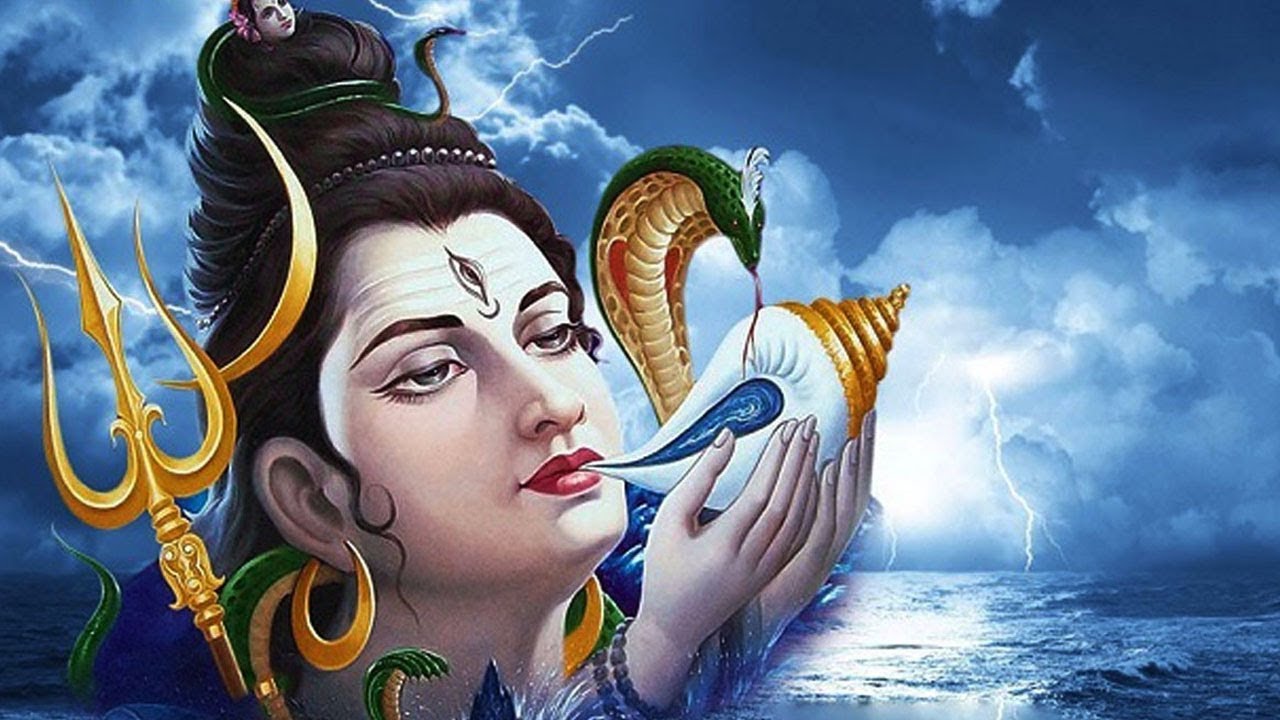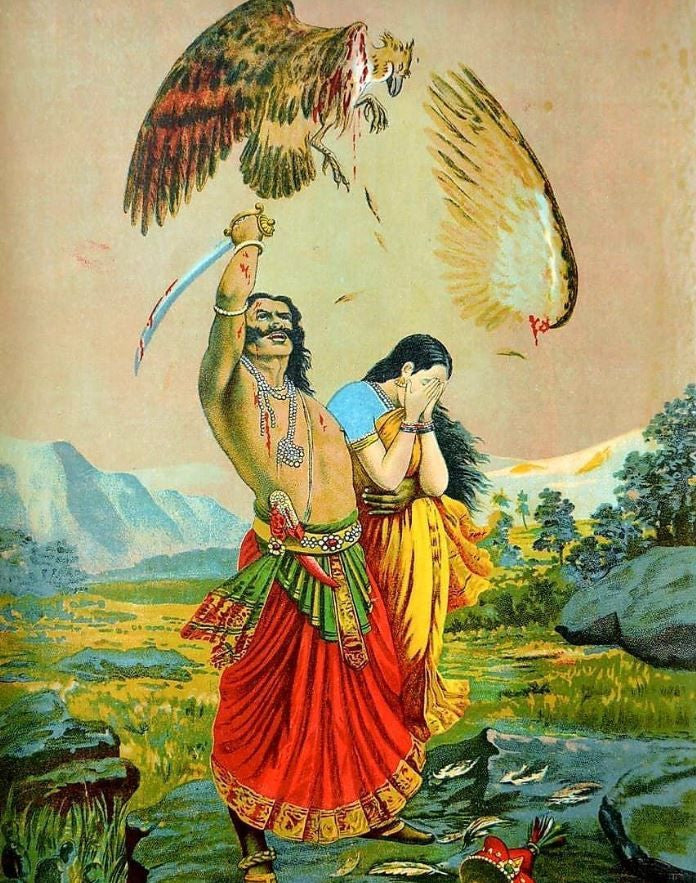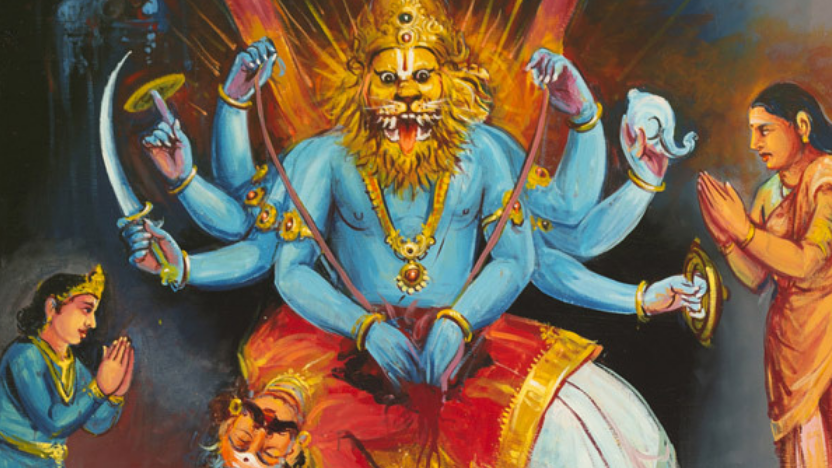
The Story of The Neelkantha
Also known as Mahadev, Shiva is one of the three deities of the ‘Great Trinity’ or ‘The Hindu Triad’, as per the Hindu mythology. The three gods Brahma, Vishnu, and Mahesh i.e. Shiva are responsible for the creation, maintenance, and destruction of the universe respectively.
Shiva is revered as a very strong yet kind being who, in response to the pleas of his followers, melts like ice. Numerous tales concerning Lord Shiva's abilities, love, rage, and other emotions have been recorded and read over the ages.
Many things about Lord Shiva are well known. His three-eyed appearance, serpent around his neck, matted hair, trident, and the disaster the third eye brings about when the Lord is furious. Lord Shiva's blue throat is another amazing feature. Have you ever questioned why Shiva is shown as having a blue throat? Let's find out why he was given the nickname "Neelkanth," which means "blue throat."
Samudra Manthan
One needs to be familiar with Samudra Manthan in order to understand the story of Neelkanth's actual meaning. Durvasa Rishi once encountered the King of Gods Indra, according to ancient religious texts. Indra was given a garland, which he placed on his elephant's ivory. The garland offended the elephant, who then hurled it on the ground. Durvasa Rishi was angered by this because the garland was meant to be used as a blessing and not be discarded. Durvasa Rishi, fueled by his fury, cursed Indra and all gods, saying that they would lose all of their power, vitality, and prosperity. One of the rakshasa kings named Bali seized this chance to take heaven and begin ruling the universe.
Indra, who had been defeated by demons, went to Lord Vishnu to ask for assistance so that he may be restored as the ruler of the gods. For Indra and all the gods who had their abilities taken away by Durvasa Rishi's curse, Vishnu said that if they can succeed in extracting the amrita from the milky ocean's depths by churning it and then ingesting it, they might be able to reclaim their abilities. Samudra Manthan is the name given to this significant churning of the Milky Ocean, or what is today called the Indian Ocean. To complete this enormous work, however, the gods needed the aid of rakshasas, as they were now helpless.
Halahala
The Mandara Parvat (a powerful mountain with the name Mandara) was employed as a churning rod to complete this difficult work, and Vasuki (the king of Snakes) was transformed into a rope.
In order to get the nectar from the bottom of the Kshirasagara, the Devas and Asuras began tugging the rope from opposite sides. However, as the water churned, even dangerous objects began to surface. Halahala was a toxin that slowly began to permeate everywhere. Another legend claims that Halahala was the poison that oozed from Vasuki's mouth as the Devas and Asuras dragged him back and forth.
The lethal nature of this poison quickly caused any creatures who came into touch with it to start dying. Even the Gods and the devils nearly died from suffocation. At this point, Lord Brahma and Vishnu asked Shiva for his help. A compassionate being that he is, Lord Shiva agreed to take the responsibility to save the entire universe. He appeared before everyone and drank the entire poison.
But were you aware of the part Goddess Parvati played in this?
Goddess Parvati entered Lord Shiva's neck in the shape of a Mahavidya and limited the poison to his throat after becoming alarmed by the poison's rapid spread. As a result, Lord Shiva had a blue throat and acquired the name Neelkanth.
Hindu texts are filled with stories of Lord Shiva's innumerable miracles. Drinking the poison, however, is one of these numerous miracles that has profound significance for all people. It serves as both a lesson for us and a tale of how Lord Shiva protects us in every way. Shiva's blue throat represents the idea that we don't always have to repress or react to our vices. Sometimes we have to change the negatives and render them useless. Like many other gods, Lord Shiva is known by names that are tied to extremely specific legends. He has typically given himself up to preserve mankind or to save others. The origin story of Lord Shiva's nickname "Neelkanth" is similarly one of self-sacrifice. He is unmatched in this field.
The legends and customs surrounding our great Gods and Devi-Devtas may have a lot to teach the modern world today. The list of lessons also includes compassion and selflessness, both of which may be put into practise right away! The issue with today's society is that we are forgetting everything about our cultural roots and the teachings that went along with them, which is becoming more and more evident every day. So next time Shivratri rolls around the corner remember all these stories and be more in tune with our great Lord Shiva!

